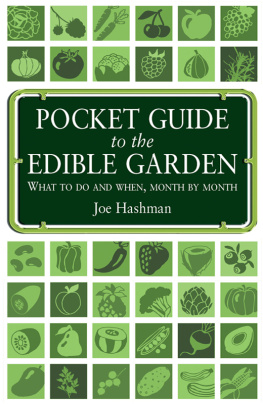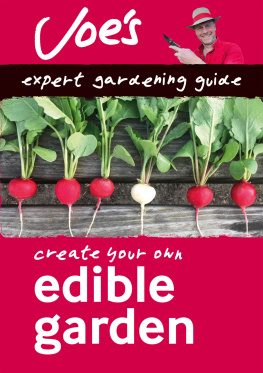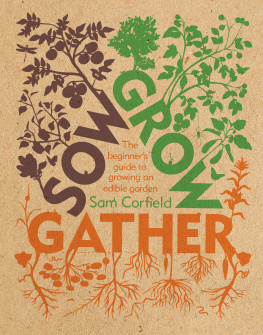 Visit our How To website at www.howto.co.uk At www.howto.co.uk you can engage in conversation with our authors all of whom have been there and done that in their specialist fields. You can get access to special offers and additional content, but most importantly you will be able to engage with, and become a part of, a wide and growing community of people just like yourself. At www.howto.co.uk youll be able to talk and share tips with people who have similar interests and are facing similar challenges in their lives. People who, just like you, have the desire to change their lives for the better: be it through moving to a new country, starting a new business, growing their own vegetables or writing a novel. At www.howto.co.uk youll find the support and encouragement you need to help make your aspirations a reality. How To Books strives to present authentic, inspiring, practical information in its books. How To Books strives to present authentic, inspiring, practical information in its books.
Visit our How To website at www.howto.co.uk At www.howto.co.uk you can engage in conversation with our authors all of whom have been there and done that in their specialist fields. You can get access to special offers and additional content, but most importantly you will be able to engage with, and become a part of, a wide and growing community of people just like yourself. At www.howto.co.uk youll be able to talk and share tips with people who have similar interests and are facing similar challenges in their lives. People who, just like you, have the desire to change their lives for the better: be it through moving to a new country, starting a new business, growing their own vegetables or writing a novel. At www.howto.co.uk youll find the support and encouragement you need to help make your aspirations a reality. How To Books strives to present authentic, inspiring, practical information in its books. How To Books strives to present authentic, inspiring, practical information in its books.
Now when you buy a title from How To Books, you get even more than just words on a page.  Constable & Robinson Ltd 5556 Russell Square London WC1B 4HP www.constablerobinson.com How To Books greatly reduce the carbon footprint of their books by sourcing their typesetting and printing in the UK. All rights reserved. No part of this work may be reproduced or stored in an information retrieval system (other than for purposes of review) without the express permission of the publisher in writing. The right of Joe Hashman to be identified as author of this work has been asserted by him in accordance with the Copyright, Designs and Patents Act 1988. Text 2010 Joe Hashman British Library Cataloguing in Publication Data A catalogue record of this book is available from the British Library.
Constable & Robinson Ltd 5556 Russell Square London WC1B 4HP www.constablerobinson.com How To Books greatly reduce the carbon footprint of their books by sourcing their typesetting and printing in the UK. All rights reserved. No part of this work may be reproduced or stored in an information retrieval system (other than for purposes of review) without the express permission of the publisher in writing. The right of Joe Hashman to be identified as author of this work has been asserted by him in accordance with the Copyright, Designs and Patents Act 1988. Text 2010 Joe Hashman British Library Cataloguing in Publication Data A catalogue record of this book is available from the British Library.
ISBN: 978 1 905862 46 7 eISBN: 978 1 848034 79 2 Produced for How To Books by Deer Park Productions, Tavistock, Devon
Designed and typeset by Mousemat Design Ltd
Printed and bound by in Great Britain by Bell & Bain Ltd., Glasgow NOTE: The material contained in this book is set out in good faith for general guidance and no liability can be accepted for loss or expense incurred as a result of relying in particular circumstances on statements made in the book. Laws and regulations are complex and liable to change, and readers should check the current position with relevant authorities before making personal arrangements. Cover by Mousemat Design
Contents

Until recently, growing vegetables in kitchen gardens and allotments was viewed largely as a preserve for old men and retirees, where the secret lives of gardeners carried on in make-do-and-mend shanty towns of sheds, dwellings and peaceful havens away from the noise, worries and trappings of modern times: a world of pipe-smoking, double-digging, giant-veg growing, moonshine-brewing, magic and mystery which was accessible only to the very young (as grandchildren, for a treat) or those approaching the autumn of their years. As recently as the year 2000, allotment sites countrywide were neglected and falling into disrepair as their incumbents either gave up or took their seed packets to the great veg patch in the sky. Hotbeds of cultivation became overgrown wastelands, havens for the creatures that make their homes in long grass but hardly conducive to growing your own food. Surviving plots were tended by a hardy breed of gardener who, through the repetitive spirit of their actions, kept the fields and dreams they shared alive.
Something happened after 2001. Whether it was the 9/11 atrocity or something else is unclear, but suddenly reps in the gardening trade noticed sales of vegetable seeds starting to increase and, a few years later, outstripping those for ornamentals. In tandem was a renewed interest from ordinary people (thats you and me) in how to grow vegetables. Suddenly folk were clamouring for allotments. Derelict land was being reclaimed by a new generation of gardeners. These were often younger people with families frequently they were women! A revolution was happening and it carries on still, to this day.
The great thing about this revolution is that it is universally inclusive. It is not a club where you have to give funny handshakes or pass a dodgy induction ritual. It is a world of possibility which embraces anyone prepared to invest the time and effort which are the only demands. Writing as Dirty Nails, through his weekly articles in local and regional newspapers, Joe Hashman has been demystifying the art of edible gardening to a public audience since February 2004. His urge to grow vegetables and fruit stems from a love of nature and good, locally-produced, wildlife-friendly food. He is now the author of several books which combine his passion for gardening with the natural pleasures of being outdoors in amongst it.
Helen Lanchbery supplied the illustrations. Theyre based on scraps of paper and scribbled notes supplied by the author. With five grown-up children who were raised on food she grew and preserved herself from the family veg patch, Helen has drawn on her life-long experiences as a gardener to provide beautifully interpreted visual guidance for the reader.  Your Pocket Guide to the Edible Garden holds green and not-so-green fingered hands through the fruit and vegetable gardening year. It answers those awkward but essential questions regarding how deep, how far apart, how to look after fruit and veggies, when to do this and that. Your Pocket Guide to the Edible Garden is not meant to sit on the coffee table or be lost in your bookshelves.
Your Pocket Guide to the Edible Garden holds green and not-so-green fingered hands through the fruit and vegetable gardening year. It answers those awkward but essential questions regarding how deep, how far apart, how to look after fruit and veggies, when to do this and that. Your Pocket Guide to the Edible Garden is not meant to sit on the coffee table or be lost in your bookshelves.
Its a practical manual which wants to live in your pocket or toolkit and be consulted throughout the seasons, just as you might turn to an experienced old friend for advice and guidance on edible gardening matters. Your Pocket Guide to the Edible Garden sees the knowledge and experience of author Joe Hashman and illustrator Helen Lanchbery condensed into clear and concise language. This little book aims simply to empower you and enhance your chances of success on the plot. Good luck. Growing your own food is a wonderful, soul-enhancing thing to do.
HOW TO USE THIS BOOK
This book is divided up into the months of the year.
HOW TO USE THIS BOOK
This book is divided up into the months of the year.
The months are divided into related subjects. Each subject contains information some of which include a further reference. The first three letters of this reference point you to the month and the number directs you to where the entry lies within that month. Throughout the text you will be guided to references made earlier or subsequently which contain further (relevant) advice. Within ), which refers to potato blight. The illustrations are numbered too.
They are referred to in the text with their individual number and the page which youll need to turn to see them, e.g. (), which is called: Cross-section of how to plant an asparagus crown. But before we begin
UNDERSTANDING PROPRIETARY GROWING MEDIA
Dont make the mistake of purchasing cheap commercially produced potting composts for raising your veggies from seed or in containers. The results from such bargains are often disappointing. Having failed miserably to muster my charges in the past, the lesson Ive learned is that you get what you pay for. Nowadays Im happy to dispense a fair price for a decent product.
Next page






 Visit our How To website at www.howto.co.uk At www.howto.co.uk you can engage in conversation with our authors all of whom have been there and done that in their specialist fields. You can get access to special offers and additional content, but most importantly you will be able to engage with, and become a part of, a wide and growing community of people just like yourself. At www.howto.co.uk youll be able to talk and share tips with people who have similar interests and are facing similar challenges in their lives. People who, just like you, have the desire to change their lives for the better: be it through moving to a new country, starting a new business, growing their own vegetables or writing a novel. At www.howto.co.uk youll find the support and encouragement you need to help make your aspirations a reality. How To Books strives to present authentic, inspiring, practical information in its books. How To Books strives to present authentic, inspiring, practical information in its books.
Visit our How To website at www.howto.co.uk At www.howto.co.uk you can engage in conversation with our authors all of whom have been there and done that in their specialist fields. You can get access to special offers and additional content, but most importantly you will be able to engage with, and become a part of, a wide and growing community of people just like yourself. At www.howto.co.uk youll be able to talk and share tips with people who have similar interests and are facing similar challenges in their lives. People who, just like you, have the desire to change their lives for the better: be it through moving to a new country, starting a new business, growing their own vegetables or writing a novel. At www.howto.co.uk youll find the support and encouragement you need to help make your aspirations a reality. How To Books strives to present authentic, inspiring, practical information in its books. How To Books strives to present authentic, inspiring, practical information in its books. Constable & Robinson Ltd 5556 Russell Square London WC1B 4HP www.constablerobinson.com How To Books greatly reduce the carbon footprint of their books by sourcing their typesetting and printing in the UK. All rights reserved. No part of this work may be reproduced or stored in an information retrieval system (other than for purposes of review) without the express permission of the publisher in writing. The right of Joe Hashman to be identified as author of this work has been asserted by him in accordance with the Copyright, Designs and Patents Act 1988. Text 2010 Joe Hashman British Library Cataloguing in Publication Data A catalogue record of this book is available from the British Library.
Constable & Robinson Ltd 5556 Russell Square London WC1B 4HP www.constablerobinson.com How To Books greatly reduce the carbon footprint of their books by sourcing their typesetting and printing in the UK. All rights reserved. No part of this work may be reproduced or stored in an information retrieval system (other than for purposes of review) without the express permission of the publisher in writing. The right of Joe Hashman to be identified as author of this work has been asserted by him in accordance with the Copyright, Designs and Patents Act 1988. Text 2010 Joe Hashman British Library Cataloguing in Publication Data A catalogue record of this book is available from the British Library. Until recently, growing vegetables in kitchen gardens and allotments was viewed largely as a preserve for old men and retirees, where the secret lives of gardeners carried on in make-do-and-mend shanty towns of sheds, dwellings and peaceful havens away from the noise, worries and trappings of modern times: a world of pipe-smoking, double-digging, giant-veg growing, moonshine-brewing, magic and mystery which was accessible only to the very young (as grandchildren, for a treat) or those approaching the autumn of their years. As recently as the year 2000, allotment sites countrywide were neglected and falling into disrepair as their incumbents either gave up or took their seed packets to the great veg patch in the sky. Hotbeds of cultivation became overgrown wastelands, havens for the creatures that make their homes in long grass but hardly conducive to growing your own food. Surviving plots were tended by a hardy breed of gardener who, through the repetitive spirit of their actions, kept the fields and dreams they shared alive.
Until recently, growing vegetables in kitchen gardens and allotments was viewed largely as a preserve for old men and retirees, where the secret lives of gardeners carried on in make-do-and-mend shanty towns of sheds, dwellings and peaceful havens away from the noise, worries and trappings of modern times: a world of pipe-smoking, double-digging, giant-veg growing, moonshine-brewing, magic and mystery which was accessible only to the very young (as grandchildren, for a treat) or those approaching the autumn of their years. As recently as the year 2000, allotment sites countrywide were neglected and falling into disrepair as their incumbents either gave up or took their seed packets to the great veg patch in the sky. Hotbeds of cultivation became overgrown wastelands, havens for the creatures that make their homes in long grass but hardly conducive to growing your own food. Surviving plots were tended by a hardy breed of gardener who, through the repetitive spirit of their actions, kept the fields and dreams they shared alive.  Your Pocket Guide to the Edible Garden holds green and not-so-green fingered hands through the fruit and vegetable gardening year. It answers those awkward but essential questions regarding how deep, how far apart, how to look after fruit and veggies, when to do this and that. Your Pocket Guide to the Edible Garden is not meant to sit on the coffee table or be lost in your bookshelves.
Your Pocket Guide to the Edible Garden holds green and not-so-green fingered hands through the fruit and vegetable gardening year. It answers those awkward but essential questions regarding how deep, how far apart, how to look after fruit and veggies, when to do this and that. Your Pocket Guide to the Edible Garden is not meant to sit on the coffee table or be lost in your bookshelves.